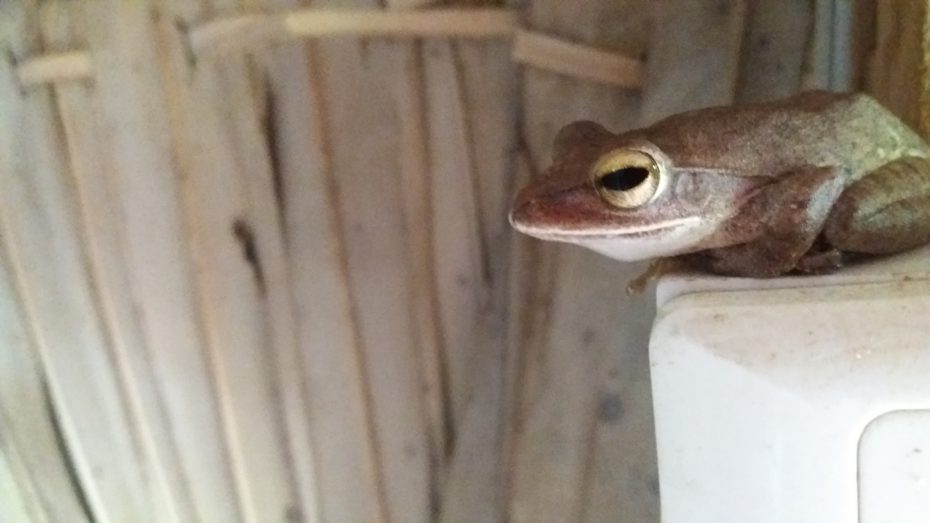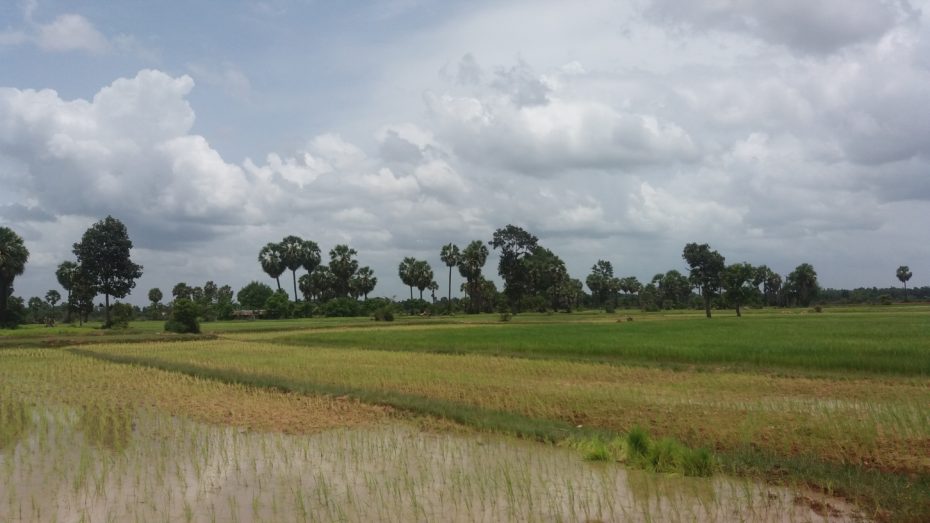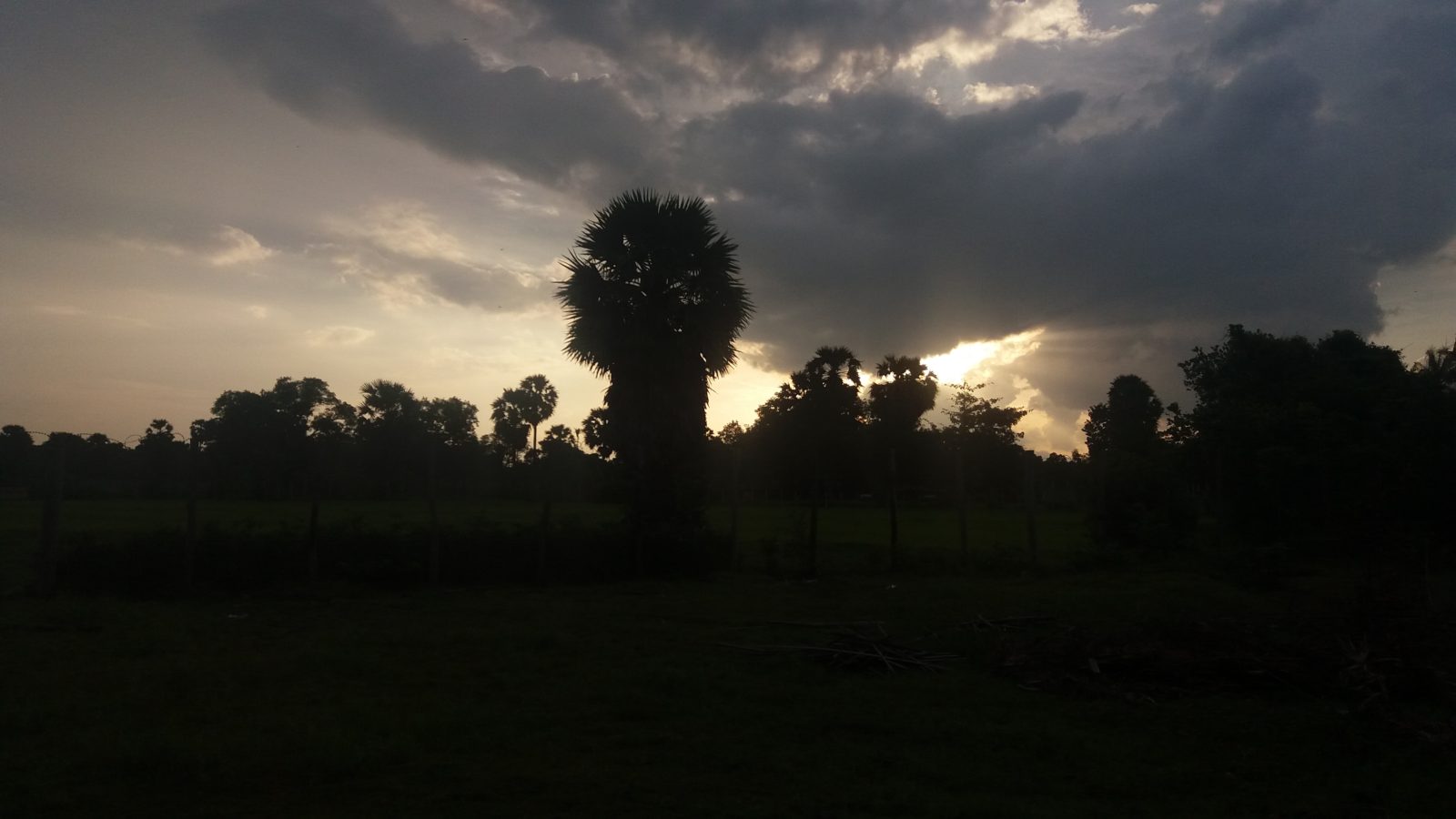From the outset, I had an inkling that Hariharalaya yoga and mediation retreat, near Siem Reap in Cambodia, would be a pretty hippy and new-agey place. As someone who has been known to wear long, multi-coloured skirts with little bells on them, I probably am not in a position to be too judgemental. But if I am a hippy, I am one who believes in rational-thinking and science, too. I was wary of any spiritual or quasi-religious offerings being served alongside the vegan food at the retreat.
So on arrival I admit that I was somewhat alarmed to find that Joel, the American owner of the retreat, embodied the guru stereotype completely with his white cotton tunic, turban, beard and beads hanging around his neck. As I unpacked my bags I found a little book of his teachings on my bedside table. It turned out Joel was a follower of Amma, the Indian guru – something which wasn’t in the fine-print of the sign-up form. But Joel seemed pretty unpretentious and chilled, and I relaxed as I realised that the retreat wasn’t going to seriously push any particular branch of spirituality on us.
But a jumble of mystical beliefs floated about, with a number of new-ager clichés undeniably ringing true. There was palm-reading, chanting to Hindu gods and talk about the vibrational forces of different foods. There were people at the retreat who were into angel-healing, reptilians and communication with spirits.
Some of the esoteric beliefs that I came across troubled me because in many cases they were un-falsifiable. Things I felt could be coincidences, like the palm reader seeing significant events at a specific age in someone’s childhood, were interpreted as convincing evidence. On the flipside, failures were explained and excused. A message from ‘the other side’ was received by one of our group members but the name of the spirit didn’t ring any bells for the supposed recipient. This was interpreted as ‘static’.
But I tried to be open-minded. In the name of trying new things, I saw the visiting French acupuncturist who claimed to be able to tell from a brief physical examination whether you ate meat and what your blood type was – accurately from all accounts. After I told the acupuncturist about my food intolerances, he told me I should see an actual doctor, which inspired significant respect, and then diagnosed that my small intestines lacked ‘chi’. He stuck uncomfortable pins in my head and stomach and gave me a kind of incense to burn next to my belly-button, which I didn’t do because I was staying in a highly flammable thatched hut.

The frog that inhabited my hut seemed to have meditation and spirituality all worked out.
Much of the mysticism I encountered seemed harmless. But another part of me felt intensely confronted. I wondered whether these ideas were really compatible with a scientific, evidence-based approach to the world. The people that held these beliefs seemed absolutely lovely and disinclined to force their perspective on anyone. Perhaps the partial jettisoning of science by well-heeled bohemians wasn’t such a problem as long as they were still willing to accept the science of things that actually affect our society, like climate change and vaccination? But throw poverty, religious extremism and lack of education into the mix and it seemed you end up with Salem witch trials, creationism and ‘exorcisms’ of people with mental illnesses. I didn’t know where the line was that separated aura-reading from unscientific beliefs about the detoxifying and healing qualities of rhino horn and pangolin scales that were driving these species towards extinction.
I never voiced my cynicism in this way at the retreat, for obvious reasons. I didn’t want to be contrarian. People were here for time out and didn’t need me picking fights with them. But I did try to be somewhat open about my doubts because I felt like otherwise it was hard to interact with people honestly and be myself. I definitely wasn’t the only one at the retreat who preferred their yoga sans prescription spirituality, and overall my skepticism was tolerated and even empathised with at the retreat. But at times it made me feel slightly on the outer. For example, my suggestion to scientifically test chakra-reading to ensure any genuine benefits could be applied more widely was not well-received.
During brief moments everything tipped upside down and I wondered whether I was blind – whether I simply wasn’t open-minded enough to embrace the possibility of something more to life. Maybe I wasn’t trying hard enough to transcend the rational brain and simply accept. Maybe I was thinking too much, being too hard and calculating to connect with the spiritual.

The fields around the village proved fertile ground for mulling over my skepticism.
I didn’t want to be closed-minded or judgemental. Of course there is much about the world we don’t understand – dogs hear things we can’t hear, butterflies see colours we can’t see. People have different experiences, which they interpret differently. Maybe I just wasn’t tapped in to this world – maybe I was insensitive to the energy fields that some people could feel. Maybe my ‘proof’ that there are no ghosts because people never see them at Ikea or Bunnings simply proves that ghosts have higher pursuits than home improvement.
Though I questioned myself at times, I was ultimately unapologetic. We all define spirituality differently. And I couldn’t accept that my home-brand spirituality was any less valid without the inclusion of assorted gods, spirits and angels. To me spirituality is about feeling a connection to and respect for nature, other people and myself. Nothing super-natural or mystical is required. To me, the world we see is magical enough as it is. And using science to understand it only enhances the wonder I feel.
So in the end I made peace with my skepticism. I sat with it in meditation, and realised that it is simply my nature to wonder and inquire. I will probably always be driven to politely question people claiming to possess answers. To shut off my doubt would be to stop being curious. To stop trying to understand the world better. So I’m all for skepticism, as long as you’re prepared to question yourself too once in a while.

